|
An Ontario College of Art & Design University (OCAD U) band section in next year’s Toronto Caribbean Carnival is a possibility.
That’s one of the goals of Canadian-born Trinidadian resident Michael Lee Poy who is among five new permanent faculty hires in recognition of the International Decade for Peoples of African Descent. “I am always ready to start a band,” he said. “At OCAD U, I intend to get directly involved in the carnival at the lowest level like making costumes and also planning a band if we can. The nice thing about carnival, which you don’t see in the Diaspora, is the social commentary that is part of the basis of carnival in the Caribbean where you get to see the placards like what we are seeing in the protests. That aspect gives you the opportunity to speak about things like Black Lives Matter and so on in a festival setting.” Since 2015, Lee Poy has been incubating Moko Jumbie Mas Camp workshops for children. “The Moko Jumbie and cultural characters of other Caribbean islands are some of the things I would like to bring to Toronto,” said the artist-activist who utilizes interdisciplinarity to augment the innovative, creative and collaborative process of design. “I want to show people it’s not just about the breast, bumsee, feathers and beads. That is not what I am interested in.” A University of the West Indies (UWI) Department of Creative & Festival Arts part-time lecturer, Lee Poy said the OCAD U job description spoke directly to his Black experience. “My parents went to Montreal in 1959 and I grew up as one of the few persons in my environment,” noted the 2018 Cleveland Museum of Art Parade the Circle international guest artist. “I didn’t see any Black teacher through high school besides being the only one of colour in my classes and there wasn’t a Black Architectural group at Pratt until I was leaving. That sort of mentorship from old to young is important just to facilitate your schooling and getting through. The White students have that support.” Lee Poy’s first 18 years were spent in Montreal before heading to New York to study Architecture at the Pratt Institute and then Connecticut to complete a graduate degree in Environmental Design at Yale before moving to Trinidad 16 years ago. The last time he was in Toronto was in 1994 for an uncle’s funeral. Lee Poy joins Kathy Moscou, Marton Robinson, Angela Bains and Kestin Cornwall as the first cohort of full -time Black Faculty members in OCAD U’s Faculty of Design 144-year history. The hiring is part of the university’s dedication to the implementation of its academic plan that articulates a commitment to decolonization, diversity and equity. Dr. Elizabeth ‘Dori’ Tunstall pledged last year that Canada’s oldest and largest art & design educational institution would have full-time Black faculty members before she leaves. Source: RonFanfair, June 6, 2020
0 Comments
I come here when I have a little time, sometimes late in the evening or very early in the morning. I do a lot of focussed thinking when I am tilling the soil and while I am planting.
Since coming into office I've created and kept a kitchen garden at the Prime Minister's official residence in St. Anns. Dr. Alexandra Amon is an astrophysicist from the sister islands of Trinidad and Tobago. In June of last year, she won the Michael Penston Prize for the best doctoral thesis in astronomy or astrophysics completed in the United Kingdom during 2018 with her thesis titled, “Cosmology with the Kilo-Degree Lensing Survey.” The Michael Penston prize, a very prestigious award, is presented annually by the Royal Astronomical Society (RAS) in the United Kingdom. Dr. Amon was also the 2019 runner up for the Jocelyn Bell Burnell Medal and Prize, which is awarded annually by the Institute of Physics in the UK for exceptional early-career contributions to physics by a very early career female physicist. In an email interview with us, Dr. Amon humbly explained her role as an astrophysicist,
“I’m an astrophysicist, or more specifically, an observational cosmologist. Those are fancy-sounding words that just mean I spend my days doing scientific research to answer questions about our universe.” Dr. Amon grew up in Maraval, Trinidad and Tobago, and attended St. Joseph’s Convent, Port of Spain. She then attended the University of Edinburgh in Scotland on an island scholarship to complete a master’s in physics. Dr. Amon also completed her PhD at the same university and is currently a research fellow at Stanford University in the United States. From a young age, Dr. Amon dreamed of becoming an astronaut. She noted that a major turning point in her life was when she attended the International Summer School of Young Physicists at the Perimeter Institute in Canada. She described the experience as being “totally life-changing,” and that it gave her exposure to a career in astrophysics. Also, she realised that one way to become an astronaut was to pursue a doctoral degree. So to keep her options open, she decided to pursue a PhD. Despite many challenges along the journey studying abroad, Dr. Amon remained grounded in her Trinidadian roots. “Trinidad is a small place, but I think that the way we grow up there makes us ready for challenges anywhere,” she expressed. She also noted that working in large international teams could be challenging at times, but growing up in diverse Caribbean communities with different cultures cultivates tolerance and acceptance of people with various backgrounds. “Trinidad and the Caribbean are such melting pots of culture, that we grow up very accepting of people’s differences, and even valuing them! That’s a skill not to be under-estimated!” Another challenge she faces while studying abroad is the lack of authentic Caribbean food. Although, Dr. Amon thinks a general stereotype attached to being from the Caribbean is that we are “laid back,” she expressed that her upbringing taught her how to work hard as well as play hard. In her free time, she enjoys doing outreach programs to spread her love of space. She also enjoys yoga, gardening, surfing, and any sport involving the sun. An interesting detail she shared with us is that in the standard model of the universe, everything we know only makes up for 4% of its total mass. The normal observable matter, like the stars and planets, are just tiny fragments of the entire universe! The other 96% of space, known as dark matter and dark energy, is still a mystery. As a cosmologist, Dr. Amon gets to work on solving this mystery. Currently, she works with an international team analysing vast amounts of data retrieved from a telescope located on a mountain peak in Chile. Something important to take away from Dr. Amon would be her inspiring words of advice to aspiring astrophysicists from the Caribbean. She says to “work hard at the things you love,” and that “there is no replacement for hard work, and hard work is so much easier if there’s passion.” She also stressed that during the journey, it is crucial to stay true to one’s roots. “Along the way, stay true to yourself and your roots. It’s tempting to let that go to ‘fit in,’ but being from the Caribbean is unique, and minority opinions in these fields are valuable.” Source: Stem Caribbean, May 2020 rinidad and Tobago once again becomes centre stage for one of the world’s oldest creatures, the Leatherback turtle, as they return to our shores to nest. Turtle conservation group Nature Seekers recently shared photos of a female Leatherback turtle which came ashore to Matura Beach to lay her eggs. T&T is known as one of the largest leatherback nesting sites in the world, and the country’s conservation efforts for the endangered creature has been shown on international news agencies such as National Geographic and Blue Planet. Turtle watching season begins in Trinidad and Tobago from March 1 to August 30 and a permit is required for viewing these endangered animals, which were designated as Environmentally Sensitive Species (ESS) and are protected by law. Sightseers are warned that the turtle nesting sites on Matura and Fishing Pond beaches, and part of the Grande Riviere beach, are prohibited areas during turtle nesting season (March 1-August 30) under the Forests Act. It is also illegal to disturb turtle nesting grounds or affect the environment in any way which would harm turtle habitats. The Leatherback turtle, Loggerhead turtle, Hawksbill turtle and Olive Ridley turtle are all designated as Environmentally Sensitive Species. To see Leatherback turtles, one can apply for a permit via the Forestry Division or contact turtle conservation group Nature Seekers. Leatherback turtle numbers dropping due to bycatch Regulations under the Fisheries Act mandate that each commercial shrimp trawling vessel should have a Turtle Excluder Device as well as the specifications for the device, to ensure that turtles can escape if caught in nets. However Nature Seekers chairman Kyle Mitchell said in a 2018 interview with Loop News that the number of turtles nesting on Trinidad and Tobago’s shores was dropping, and the probable cause was bycatch. Turtles often get caught in fishing nets while coming ashore to nest, getting trapped below the water where they suffocate and die. TEDs are to be installed to allow turtles to escape the nets, if caught. Poachers caught with Leatherback turtles or anyone ill-treating a Leatherback turtle faces two years jail time and a fine of up to $100,000, under the Conservation of Wildlife Act About Leatherback turtles
Leatherbacks are the largest of all living turtles and have been in existence for approximately 100 million years. They can weigh up to 2000lbs and 10feet in length, but more commonly average 5-7 feet and 1000 lbs. They are found in all the world’s oceans. Leatherbacks come from as far as Africa, Canada and the UK to nest on local beaches. The most important nesting sites in Trinidad are Matura Bay, Fishing Pond, and Grande Riviere and Turtle Beach in Tobago. Their greatest threat worldwide is the commercial fishing industry, especially the practices of long lining and drift netting. Race relations campaigner who served in many public roles and became the first black female governor of the BBC As general secretary and co-founder of the Campaign Against Racial Discrimination (Card) in the mid-1960s, Jocelyn Barrow, who has died aged 90, helped to pave the way for the 1965 Race Relations Act, which for the first time made racial discrimination illegal in Britain. Later she became the first black female governor of the BBC and an important black presence on a number of public bodies, including the Broadcasting Standards Council and the Parole Board.
Jocelyn’s involvement in the creation of Card was sparked by an inspirational meeting she had in London in 1964 with the American civil rights activist Martin Luther King, who was passing through the UK on his way to Norway to receive the Nobel peace prize. “King was warm and charming, and wanted to give us an idea of what we should be doing,” she said. “It helped to crystallise our ideas and we went on to form Card.” While there were other influential groups that had already been applying pressure for race relations legislation in Britain – and attempts to pass private members’ bills had been going on for a number of years before 1965 – the creation of Card undoubtedly helped to galvanise Harold Wilson’s Labour government into support for an officially sanctioned bill which it then steered through parliament. Three years later, during the successful nationwide campaign that led to a new, updated 1968 Race Relations Act, Jocelyn accepted my invitation (as Card’s northern regional secretary) to lead a march against racism in Newcastle upon Tyne. The hostility towards it was phenomenal, the local press signalled the potential danger of busloads of National Front demonstrators arriving from Leeds, and the Northumbrian police tried to get the march banned altogether. Its leaders received threats to their personal safety, and Jocelyn was warned not to travel to Tyneside at all. Travel she did, however, and the march went ahead peacefully. Without a megaphone (her voice was commandingly loud), Jocelyn addressed a gathering of several hundred demonstrators, speaking of her upbringing and how it had shaped her fight against racial discrimination. Born in Port of Spain, Trinidad, Jocelyn was the daughter of Olive (nee Pierre) and her Barbadian husband, Charles Barrow, an engineer. After attending St Joseph’s Convent school in Port of Spain she trained as a teacher at the city’s governmental teacher training college, and arrived in the UK in 1959 to pursue an English degree at London University, followed by postgraduate studies at the Institute of Education. She remained in the UK for the rest of her life, and throughout the 1960s and 70s taught English at schools in Hackney, one of the most deprived areas of east London, later becoming a lecturer at Furzedown teacher training college in Tooting, south London. As an educationist who fervently believed in multiculturalism, she could not stomach the yawning gap between well-resourced schools for mainly middle-class white children and poorly resourced schools for mainly working-class black children. Her experiences in the classroom prompted her to set up a local project called Each One Teach One, designed to help black children and their families support each other educationally. However, although her teaching had its own significance, it was her more general work on race relations that garnered wider attention. She was general secretary and then vice chair of Card from 1964 to 1969, and immediately after the passage of the 1968 Race Relations Act, which made discrimination in housing and employment illegal, she was appointed a member of the Community Relations Commission, set up to co-ordinate national measures to encourage the “growth of harmonious relations” between different races. She served on that body until, after the 1976 Race Relations Act, it was amalgamated with the Race Relations Board to form the Commission for Racial Equality. Later, as a member of the Parole Board (1983–87), and particularly as the first black female governor of the BBC (1981 to 1988), she initiated programmes that encouraged young black and Asian people to fulfil their potential. She was also chair of the Equal Opportunities Commission on Training Barristers and was a patron, since its foundation in 1981, of the Black Cultural Archives. Much of Jocelyn’s public work was not directly connected to race, however. From 1989 to 1995 she was deputy chair of the Broadcasting Standards Council, forerunner of Ofcom, and from 1993 to 1999 she was a non-executive director of the Whittington Hospital NHS Trust in London, where she pleaded for better employment conditions and promotion opportunities for non-trained auxiliary nurses and carers. She also became founder and president of the Hackney Community housing association (1978 until her death); national vice president of the Townswomen’s Guild (1978–80); a member of the European commission’s economic and social committee (1990–98); a trustee of the National Museums and Galleries on Merseyside (now National Museums Liverpool), and a governor of the British Film Institute (1991–97). These and many more largely community-based organisations benefited enormously from her spirited commitment – and also from her refusal to suffer fools gladly. Jocelyn, whose anger against injustice was carefully cloaked beneath an aura of dignified authority, liked to practise what she called “pincher politics”, which she once described to me as “a bottom-up/top-down approach, with the purpose of pinching the establishment into action and reform”. It was a method that was as psychological and cultural as it was political and educational – a little Machiavellian, perhaps, but always purposeful and often highly successful. What drove Jocelyn – or “DJB” as she was affectionately known after being made a dame in 1992 – was the belief that she was entitled to be part of a society more equal than the one she had known either in her colonial birthplace or in the Britain of the 60s into which she later emerged. In her last major intervention, in 2005, Jocelyn returned to education, the field that was closest to her heart, to head a nationwide consultation commissioned by the United Learning Trust into the role of underperforming would-be Academy schools. She found that the 20 schools that she studied were in various degrees discriminatory on the grounds of race, and concluded that a new and inclusive approach needed to be adopted. She retired in 2013. In 1970 Jocelyn married Henderson Downer, a barrister and later a Jamaican appeal court judge who retired in 2004. For most of their long marriage they lived between the UK and Jamaica, enjoying their independence, separation, and togetherness in equal measure; Henderson coming to London for Christmas, Easter and a month in the summer while Jocelyn went to Jamaica from January to March. She is survived by Henderson and by two nieces, Christine and Leslie Anne, whom she raised at her home in Bloomsbury, central London. • Jocelyn Anita Barrow, race relations campaigner and teacher, born 15 April 1929; died 9 April 2020 Source: The Guardian, May 27, 2020 IMANI BISHOP, 14, of St Joseph Convent, Port of Spain, has been congratulated by the National League for Nursing (NLN) based in Washington DC, for her recent study of how the covid19 pandemic has brought about a new respect for front-line health workers such as nurses.
Her online survey has been posted on the league's website at its Coronavirus Resource Centre. NLN chief program officer Janice G. Brewington, PhD, in an e-mail to the pupil's parents Richard and Wendy Bishop, said, "We applaud Imani for her or her excellent work." Founded in 1893 as the American Society of Superintendents of Training Schools for Nurses, the NLN was the first nursing organization in the United States. Bishop's findings indicate a leap in interest in front-line health workers over the period of the pandemic. Some 80 people were polled, of whom 35 replied. They were asked, "Did you gain an interest in front-line workers due to the work they performed during the fight against the coronavirus disease?" Some 51 per cent of respondents said they had an interest before the pandemic, while 49 per cent did not. However, some 94 per cent of respondents said that during the pandemic they gained an interest in the work of front-line workers, with just six per cent saying no. Bishop called for TT to have a national day of recognition for nurses. She said she initially had no interest in the work of these workers, but had changed her mind of seeing their heroic efforts worldwide. "Their selflessness would be kept extremely close to my heart, forever. "For this altruistic act, I am proposing that, we, as nations, set a day, before the end of this year, to recognise these courageous workers, citizens, as we wait for a vaccine to be developed." She hoped it would be celebrated every year. "Continuously fighting this uphill battle against the invisible enemy, the coronavirus disease, which seems unbeatable for now, are these caring, dedicated front-line workers. "I hope that the entire nation agrees with this view and a motion is passed to have a day of recognition for these selfless citizens." Bishop also represented TT at the Carifta Triathlon in 2017, 2018 and 2019. Source: Newsday, May 18, 2020 Plans to reopen the Trinidadian economy could soon be put into full swing as the twin-island Caribbean country reports 108 recoveries and zero active cases of COVID-19. (Photo: GoTrinidadandTobago.com) Twin-island republic of Trinidad and Tobago, with its last recovery, is now among eight Caribbean countries that have brought active cases of the novel coronavirus (COVID-19) to zero.
As at 1:52 pm Greenwich Meridian Time (GMT) on Friday, May 22, some 21,630 cases have been confirmed across the region. Of that number, 10,372 patients have recovered and been released, while 793 persons have died. The other seven members of the Caribbean’s elite ‘coronavirus-free’ club are St Kitts, Dominica, Monserrat, Anguilla, Belize, St Lucia, and Saint-Barthélemy. See the latest situational analysis on COVID-19 in the Caribbean below:Dominican Republic: 254 new cases; 13,657 confirmed. 448 patients have died. (7,366 patients have recovered) Puerto Rico: 117 new cases; 3,030 confirmed. 126 patients have died. (*No information available on recoveries) Cuba: Eight new cases; 1,916 confirmed. 81 patients have died. (1,631 recoveries) Haiti: 71 new cases; 734 confirmed. 25 patients have died. (21 recoveries) Jamaica: Five new cases; 535 confirmed. Nine patients have died. (181 recoveries) French Guiana: 12 new cases; 249 confirmed. One patient has died. (137 recoveries) Martinique: No new cases; 192 confirmed. 14 patients have died. (91 recoveries) Guadeloupe: No new cases; 155 confirmed. 13 patients have died. (109 recoveries) Guyana: Two new cases; 127 confirmed. 10 patients have died. (57 recoveries) Bermuda: No new cases; 125 confirmed. Nine patients have died. (80 recoveries) Cayman Islands: Ten new cases; 121 confirmed. One patient has died. (55 recoveries) Aruba: No new cases; 101 confirmed. Three patients have died. (95 recoveries) The Bahamas: One new case; 97 confirmed. 11 patients have died. (44 recoveries) Barbados: No new cases; 90 confirmed. Seven patients have died. (70 recoveries) Sint Maarten: No new cases; 77 confirmed. 15 patients have died. (59 recoveries) US Virgin Islands: No new cases; 69 confirmed. Six patients have died. (61 recoveries) St Martin: No new cases; 40 confirmed. Three patients have died. (33 recoveries) Antigua and Barbuda: No new cases; 25 confirmed. Three patients have died. (19 recoveries) Grenada: No new cases; 22 confirmed. (17 recoveries) St Vincent and the Grenadines: One new case; 18 confirmed. (14 recoveries) Curaçao: No new cases; 16 confirmed. One patient has died. (14 recoveries) Turks & Caicos Islands: No new cases; 12 confirmed. One patient has died. (10 recoveries) Suriname: No new cases; 11 confirmed. One patient has died. (Nine recoveries) British Virgin Islands: No new cases; eight confirmed. One patient has died. (Six recoveries) Countries without active casesTrinidad and Tobago: No active cases; COVID-19 free. (Previously had 116 confirmed cases, eight patients died) St Kitts and Nevis: No active cases; COVID-19 free. (Previously had 15 confirmed cases) Dominica: No active cases; COVID-19 free. (Previously had 16 confirmed cases) Monserrat: No active cases; COVID-19 free. (Previously has 11 confirmed cases, one patient died) St Lucia: No active cases; COVID-19 free. (Previously had 18 confirmed cases) Belize: No active cases; COVID-19 free. (Previously had 18 confirmed cases, two patients died) Saint-Barthélemy: No active cases; COVID-19 free. (Previously had six confirmed cases) Anguilla: No active cases; COVID-19 free. (Previously had three confirmed cases) Source: Buzz Caribbean, May 2020 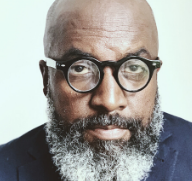 Poet Roger Robinson has won the £10,000 RSL Ondaatje Prize for his “profoundly moving” A Portable Paradise (Peepal Tree Press), which includes a sequence of poems reflecting on the Grenfell Tower fire. The annual prize rewards the best work of fiction, non-fiction or work of poetry that best evokes a sense of place. A Portable Paradise, which also won the T S Eliot Prize last year, was named the winner on 4th May across the RSL's media channels. The poet said: “Winning the RSL Ondaatje Prize is great on many levels. Gaining wider recognition for the political issues that are raised in A Portable Paradise is one of the most important things for me, alongside more people reading about the struggles of black communities in Britain which hopefully creates some deeper resonating empathy.” A writer and educator who has taught and performed worldwide, Robinson was chosen by Decibel as one of 50 writers who have influenced the black British writing canon. He is also co-founder of both Spoke Lab and the international writing collective Malika’s Kitchen, alongside being the lead vocalist and lyricist for King Midas Sound. His work was chosen from a shortlist featuring Robert Macfarlane's Underland (Hamish Hamilton), Elif Shafak's 10 Minutes 38 Seconds in This Strange World (Viking), Jumoke Verissimo's debut A Small Silence (Cassava Republic), Surge by Jay Bernard (Chatto & Windus) and Tishani Doshi's Small Days and Nights (Bloomsbury Circus). Judge Peter Frankopan branded the winner “a fabulous and ingenious work that seethes in its condemnation of injustices but sparkles in its tenderness and subtlety and revels in celebration at the things that make us all unique”. Fellow judge Pascale Petit said: “Roger Robinson’s profoundly moving book manages to balance anger and love, rage and craft. Every poem surprises with its imagery, emotional intensity and lyric power, whether dealing with Grenfell, 'Windrush', or a son’s difficult birth, which is also a tribute to a Jamaican nurse. This is a healing book, enabling us to conjure our own portable paradises.” Source: TheBookseller.com, May 4, 2020 (Robinson was born in Hackney, London, to Trinidadian parents, and at the age of four went with them to live in Trinidad, returning to England when he was 19[6] in the 1980s. He initially lived with his grandmother in Ilford, Essex, before moving to Brixton, an area of south London that he found more congenial.[8] He describes himself as "a British resident with a Trini sensibility". He was chosen by arts organisation Decibel as one of 50 writers who have influenced black-British writing over the past 50 years). |
T&T news blogThe intent of this blog is to bring some news from home and other fun items. If you enjoy what you read, please leave us a comment.. Archives
June 2025
Categories
All
|
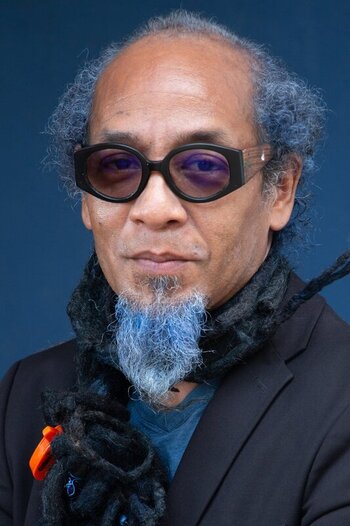
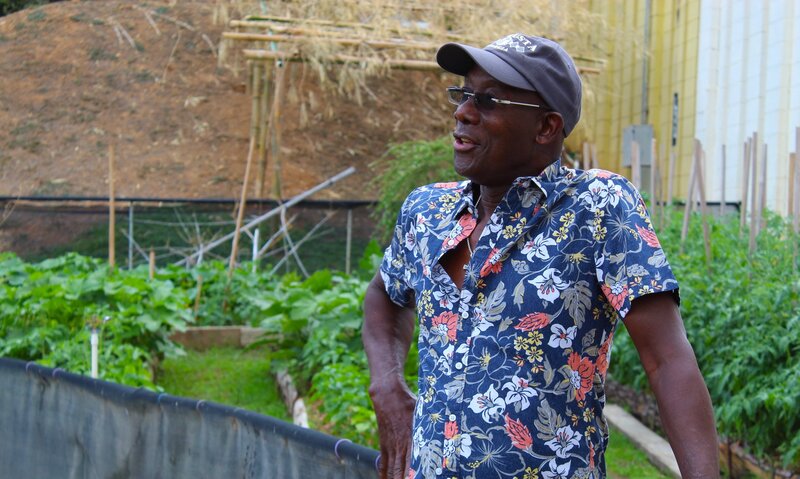
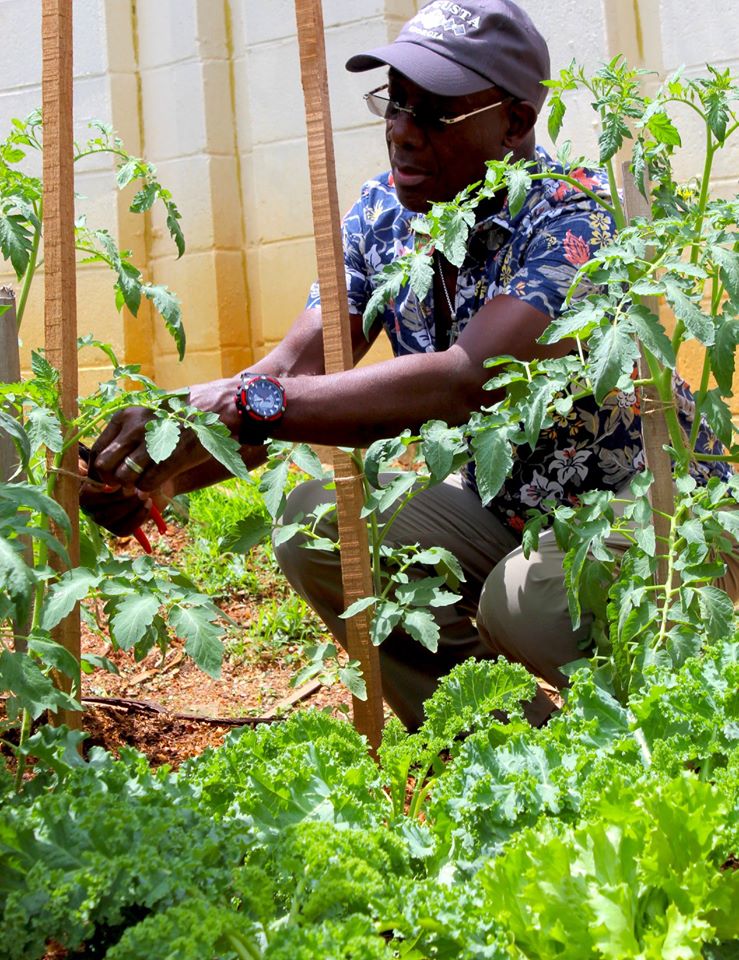
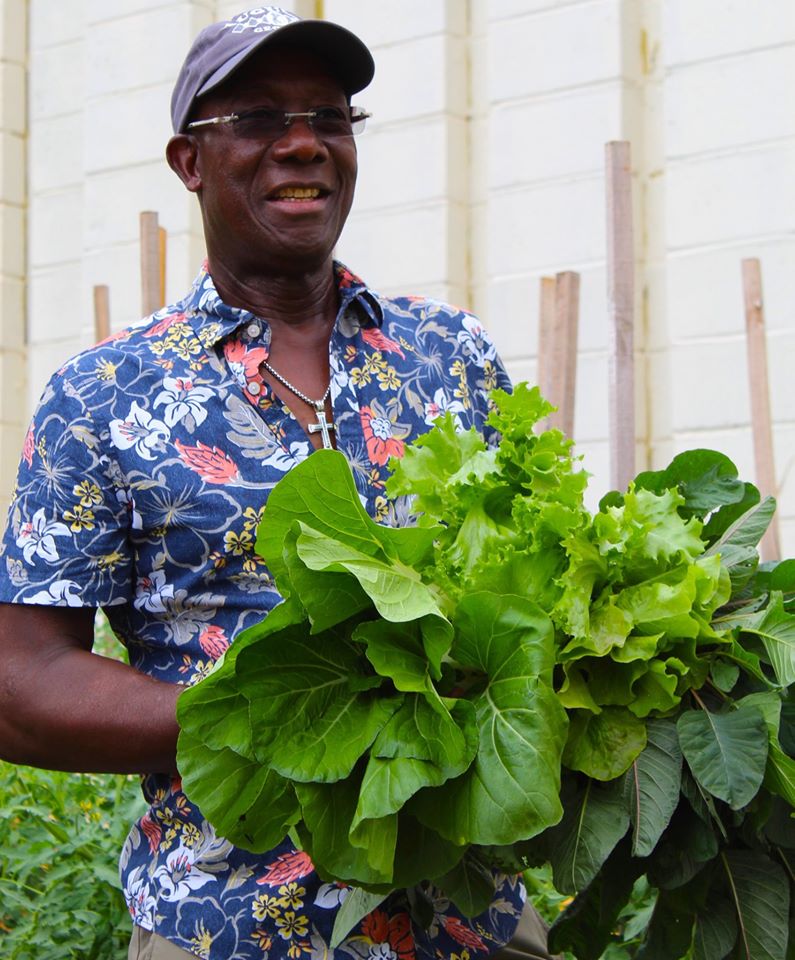

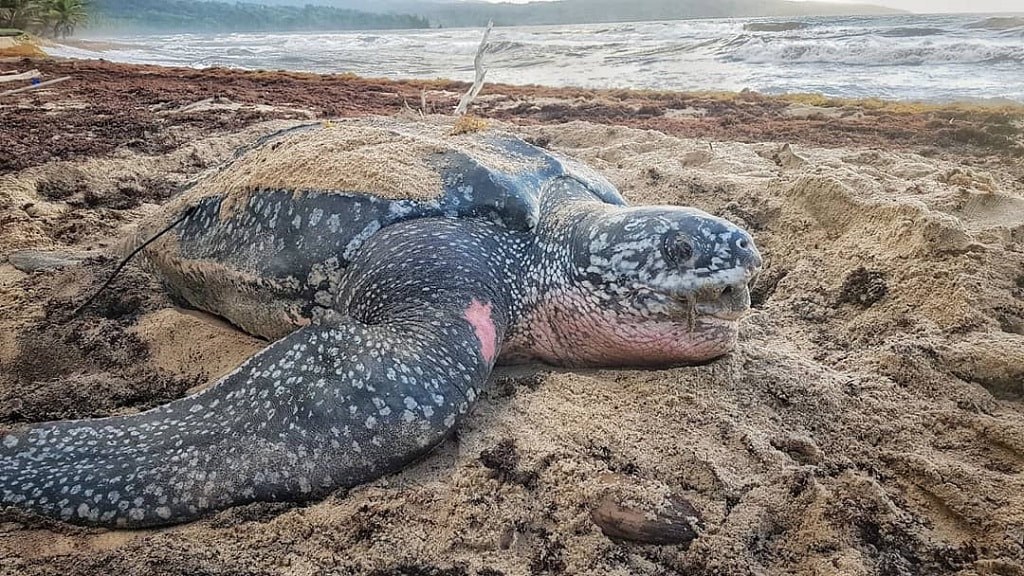
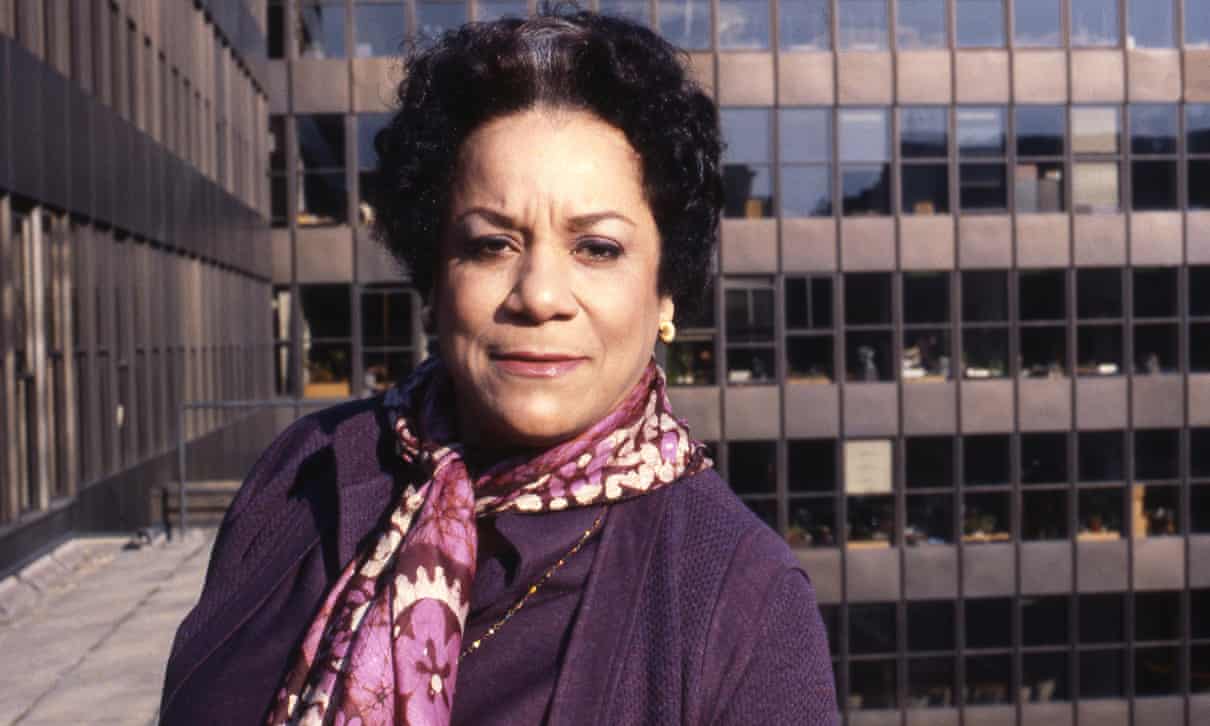
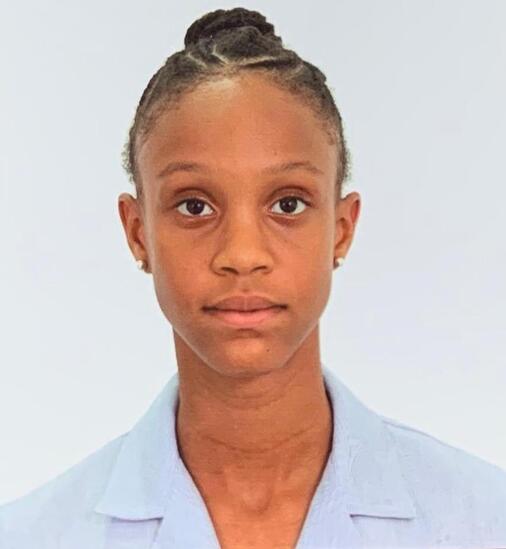
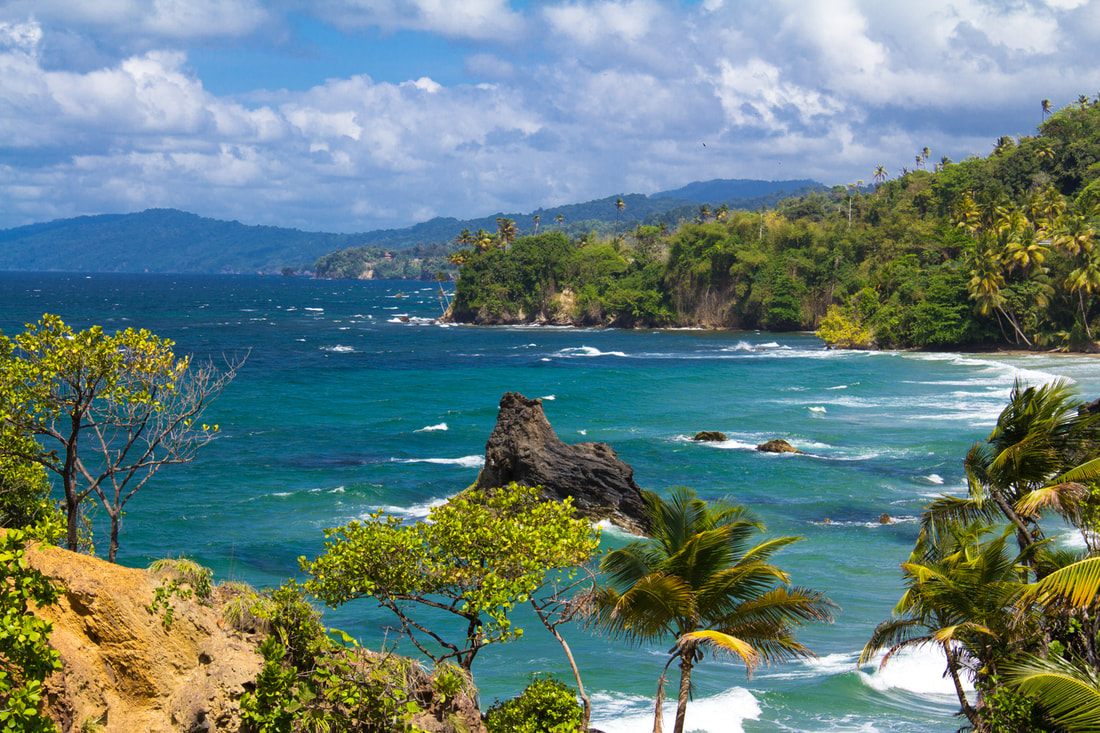
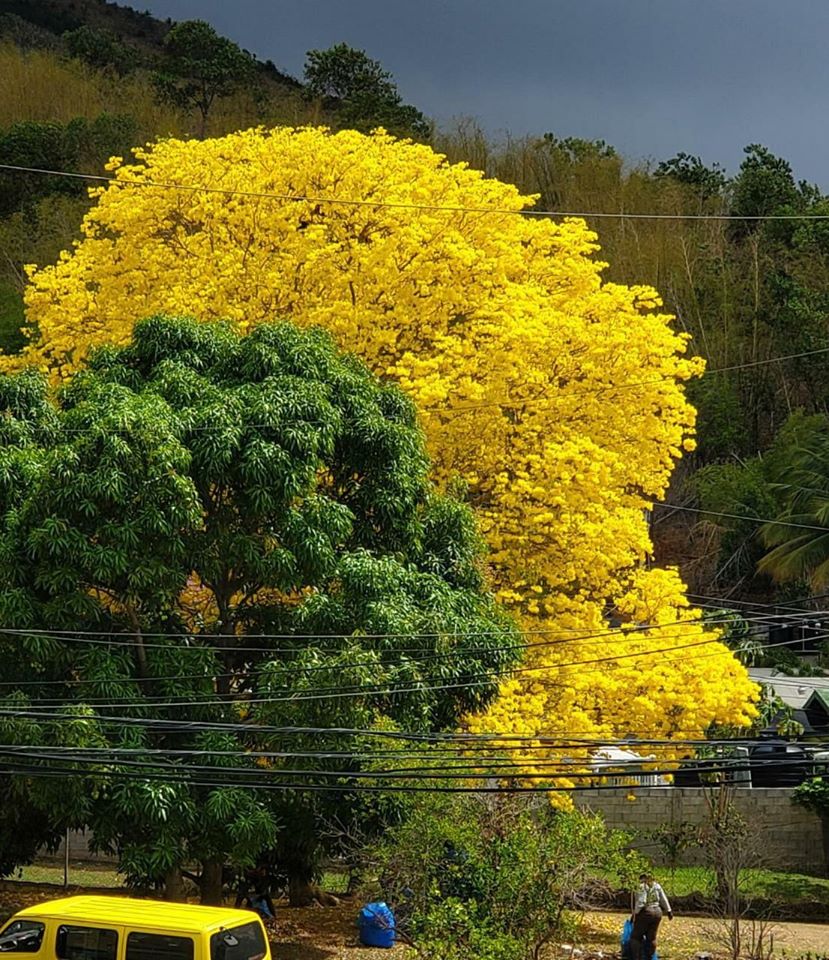

 RSS Feed
RSS Feed